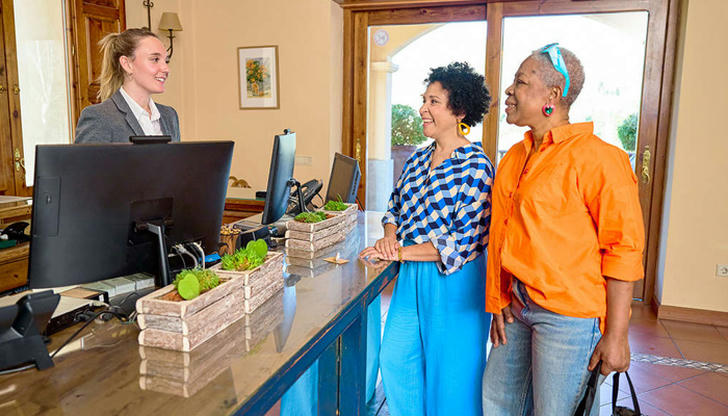Eco-Friendly Travel: Reducing Your Carbon Footprint on Vacation
Travel is a beautiful way to experience the world, but it also comes with an environmental cost. From transportation emissions to single-use plastic waste, the choices we make while on vacation have a ripple effect on the planet. The good news? You don’t have to give up travel to be eco-friendly. With mindful decisions, you can reduce your carbon footprint and make your journeys more sustainable, without sacrificing enjoyment or comfort.

I. Why Eco-Friendly Travel Matters
Tourism contributes significantly to global greenhouse gas emissions—primarily through air travel, overconsumption of resources, and environmental degradation. A 2018 study estimated that tourism accounts for approximately 8% of global carbon emissions. These impacts are amplified when popular destinations become over-touristed, leading to pollution, loss of biodiversity, and strain on local infrastructure.
By adopting eco-friendly travel habits, you can protect the natural beauty of the places you love to visit, support local communities, and inspire others to do the same. Sustainability in travel isn't just a trend—it's a necessary shift toward responsible exploration.
II. Transportation: Choosing Greener Ways to Move
🚆 Go Low-Carbon Whenever Possible
Transportation is often the largest part of your travel carbon footprint. Whenever possible:
- Take trains or buses instead of planes. For example, in Europe and parts of Asia, high-speed rail is a fast, comfortable, and low-emission alternative to flying.
- Choose nonstop flights when flying is unavoidable, as takeoffs and landings produce the most emissions.
- Use public transport, walk, or cycle once at your destination. Many cities have bike rental services or excellent subway networks.
- For regional travel, consider electric car rentals or ride-sharing services that use hybrid or electric vehicles.
🌱 Offset Your Emissions
Carbon offsetting allows you to compensate for your travel emissions by funding environmental projects such as reforestation, wind farms, or renewable energy initiatives.
- Use reputable platforms like Gold Standard, MyClimate, or airline-based offset programs.
- Calculate your flight’s emissions using tools like Atmosfair or Sustainable Travel International, and choose a certified offset plan.
While offsets are not a solution by themselves, they are a valuable step when combined with other green choices.
III. Sustainable Accommodation Choices

🏨 Stay at Green Hotels or Eco-Lodges
Your choice of accommodation has a big impact on your ecological footprint.
- Look for hotels with green certifications such as LEED, Green Globe, or EarthCheck, which indicate sustainable design and operations.
- Eco-lodges and sustainable resorts often use solar power, rainwater collection, composting toilets, and employ local staff.
- Prioritize locally-owned guesthouses over international chains to keep your spending in the local economy and reduce construction-related environmental damage.
💧 Conserve Resources
Regardless of where you stay, you can make a difference by reducing your resource consumption:
- Hang your towels to reuse them instead of requesting fresh ones daily.
- Turn off lights, air conditioning, and TV when leaving your room.
- Avoid using disposable hotel toiletries—bring your own eco-friendly alternatives in refillable bottles.
IV. Packing and Gear: Travel Light, Travel Right
🎒 Minimize What You Bring
Every kilogram adds fuel costs to planes, buses, and cars. Packing light helps reduce emissions and makes travel easier.
- Stick to versatile clothing that can be mixed and matched.
- Use digital documents (boarding passes, itineraries) to reduce paper waste.
🌍 Bring Reusables
One of the easiest ways to reduce your waste is to avoid single-use items:
- Bring a reusable water bottle with a built-in filter.
- Carry collapsible shopping bags, bamboo cutlery, and a metal or silicone straw.
- Use snack containers or beeswax wraps instead of plastic bags.
🧼 Use Eco-Friendly Products
Choose travel gear that’s kind to both your body and the planet:
- Biodegradable soap and shampoo bars
- Refillable travel toiletry bottles
- Solar-powered chargers instead of disposable batteries
V. Eating and Shopping Locally and Sustainably
🥗 Eat Local, Eat Smart
Your dining choices also have environmental consequences:
- Eating at local restaurants supports the community and reduces emissions from imported food.
- Choose plant-based meals or reduce meat intake—especially beef, which has a high carbon footprint.
- Avoid food wrapped in excess plastic. Bring your own container if you're ordering takeaway.
🛍️ Shop Ethically
Sustainable shopping is about quality, not quantity:
- Buy handmade crafts, textiles, or foods from local artisans and cooperatives.
- Avoid buying products made from endangered species, coral, ivory, or hardwoods.
- Ask questions about where products come from and how they are made.
VI. Respect Nature and Culture While Traveling

🏕️ Practice Leave No Trace
Nature should be enjoyed, not exploited. Follow these principles:
- Stick to marked trails and respect protected areas.
- Don’t pick plants or feed wildlife—these actions can disrupt ecosystems.
- Dispose of trash properly, and carry a reusable bag for waste when hiking or at the beach.
🙏 Honor Local Customs and People
Responsible travel also means being respectful:
- Learn a few basic words in the local language—it shows appreciation and can lead to more meaningful interactions.
- Understand cultural norms regarding dress, photography, and religious sites.
- Choose tours run by locals, especially those that educate about culture and conservation.
VII. Volunteering and Giving Back During Travel
👐 Contribute Responsibly
If you want to give back while traveling:
- Choose conservation-based programs, like planting trees, coral reef cleanup, or wildlife monitoring.
- Work with NGOs or vetted organizations that have long-term community partnerships.
❗ Be Aware of Voluntourism Pitfalls
Not all volunteering is helpful:
- Avoid orphanage tourism—it often does more harm than good.
- Don’t join programs that displace local jobs or offer short-term aid without follow-up.
Research thoroughly and ask: Is this truly helping, or is it for tourist satisfaction?
VIII. Final Tips for Greener Travel Habits
- Use apps like HappyCow (to find vegan/eco-friendly restaurants), GreenTrip, or EcoBnB to locate sustainable options.
- Bring a portable clothesline to avoid hotel laundry services.
- Try slow travel—stay longer in one place rather than visiting multiple cities quickly.
Sustainability isn't about perfection—it's about progress. Every action, no matter how small, can contribute to a better world.
IX. Conclusion: Small Steps, Big Impact
Travel shapes how we see the world—and how the world sees us. Eco-friendly travel is not about sacrificing comfort, but about traveling consciously and compassionately. Whether it's choosing a local restaurant, packing a reusable water bottle, or offsetting your flight emissions, your small changes matter.
By being a thoughtful traveler, you help protect the places you love to explore—ensuring they remain vibrant and beautiful for generations to come.
🌿 Leave lighter footprints. Bring home richer memories.
